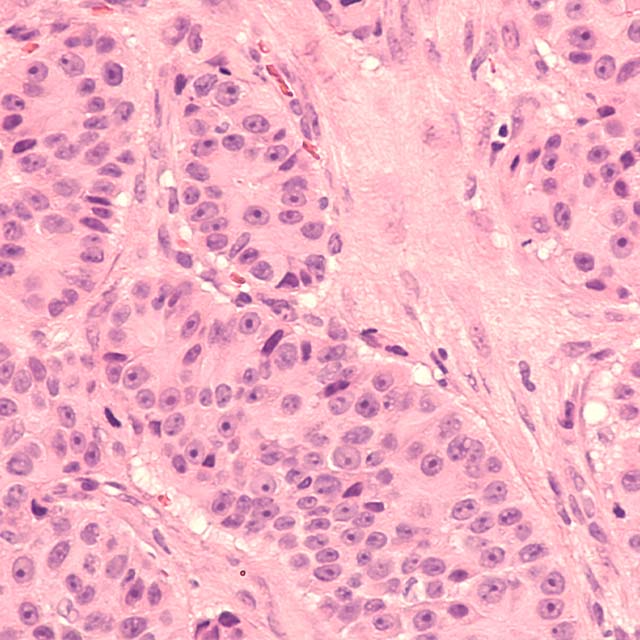Prostate cancer is the most common cancer among Australian men, with around 18,000 people diagnosed every year.
Although data from the Prostate Cancer Foundation of Australia (PCFA) shows a steady increase in five-year survival rates, extensive research into the disease is still needed to save lives.
Associate Professor Haitham Tuffaha from UQ’s Centre for the Business and Economics of Health (CBEH) is determined to bridge the gaps in the current research around prostate cancer.
He has received a prestigious PCFA 2021 Priority Research Impact Award – Future Leaders grant to investigate the value for money of prostate cancer genetic testing strategies in Australian clinical practice.
As prostate cancer can be inherited, genetic testing can identify individuals at risk and inform early detection and treatment decisions. Through his research, Associate Professor Tuffaha hopes to enhance the clinical management of prostate cancer and improve patient outcomes.
If found to be cost-effective, I want to see genetic testing in prostate cancer be reimbursed and effectively used by eligible people to optimise cancer prevention, early detection and treatment to improve health outcomes.
- Associate Professor Haitham Tuffaha
For World Health Day, we sat down with Associate Professor Tuffaha to discuss how his research will inform Australian health policy and support the needs of prostate cancer patients and their families.
Can you describe the gaps in the current research that you intend to bridge with your PCFA grant?
Genetic testing can guide treatment decisions for people with prostate cancer so they can receive less toxic and more effective therapies. It can also inform cancer prevention and screening strategies for their biological family members who wish to know about their risk of developing cancer.
However, the potential benefits of genetic testing aren’t realised because there’s substantial uncertainty around aspects of the testing. These uncertainties include how best to offer genetic testing – for example, who should be tested and which tests to use – and whether the overall benefits to the Australian health system justify the cost.
My research aims to reduce this uncertainty and inform Australian health policy about the best and most cost-effective ways to implement genetic testing for prostate cancer.

How did you become interested in this field of research?
I’m an oncology pharmacist and a health economist. My research focuses on evaluating new health technologies to optimise patient outcomes in a cost-effective way.
A few years ago, I led a project for the Department of Health to evaluate genetic testing for breast and ovarian cancer (the most common cancer types in women). I demonstrated the cost-effectiveness of genetic testing of people with breast or ovarian cancer and the testing of their first- and second-degree relatives. My research led to Medicare listing this type of genetic testing for high-risk breast cancer patients and their family members.
Why is research into genetic testing for prostate cancer so important?
In Australia, prostate cancer is very common, and it can be inherited. As I mentioned earlier, genetic testing can help determine treatment plans for prostate cancer patients. It can also assist with cancer prevention and early detection options for blood family members.
For example, female relatives who test positive for the BRCA mutation are at higher risk of breast or ovarian cancer and may choose to undertake preventative strategies. They may have surgery to remove breasts or ovaries and consider family planning options. Male relatives who have a genetic mutation could be screened and assessed for heritable cancer – for example, prostate and pancreatic cancer – at a younger age than others.
Former CEO of the PCFA Professor Jeff Dunn said “research is needed to define the benefits of genetic testing, and to identify who should receive it, as it has great potential to change the lives of patients and their families.”
What impact do you hope your research will have?

If found to be cost-effective, I want to see genetic testing in prostate cancer be reimbursed and effectively used by eligible people to optimise cancer prevention, early detection and treatment to improve health outcomes.
My research will likely inform a paradigm shift in current practice towards precision care. This includes more effective and less toxic targeted treatments for people with prostate cancer, and risk-based cancer prevention and early detection in family members.
We expect our research will provide the evidence to inform reimbursement decisions, ensure efficient allocation of our health resources and improve health outcomes.
When will your project begin – and when will your findings be ready?
The project will begin in May 2022 and finish in 2023.
What should we expect to see from you after this project wraps up?
I’ll continue to explore how to help our health system make the best use of available resources to improve health outcomes for all Australians.
Read More: Better health care for rural areas
Contact: BEL Communications team communications@bel.uq.edu.au



